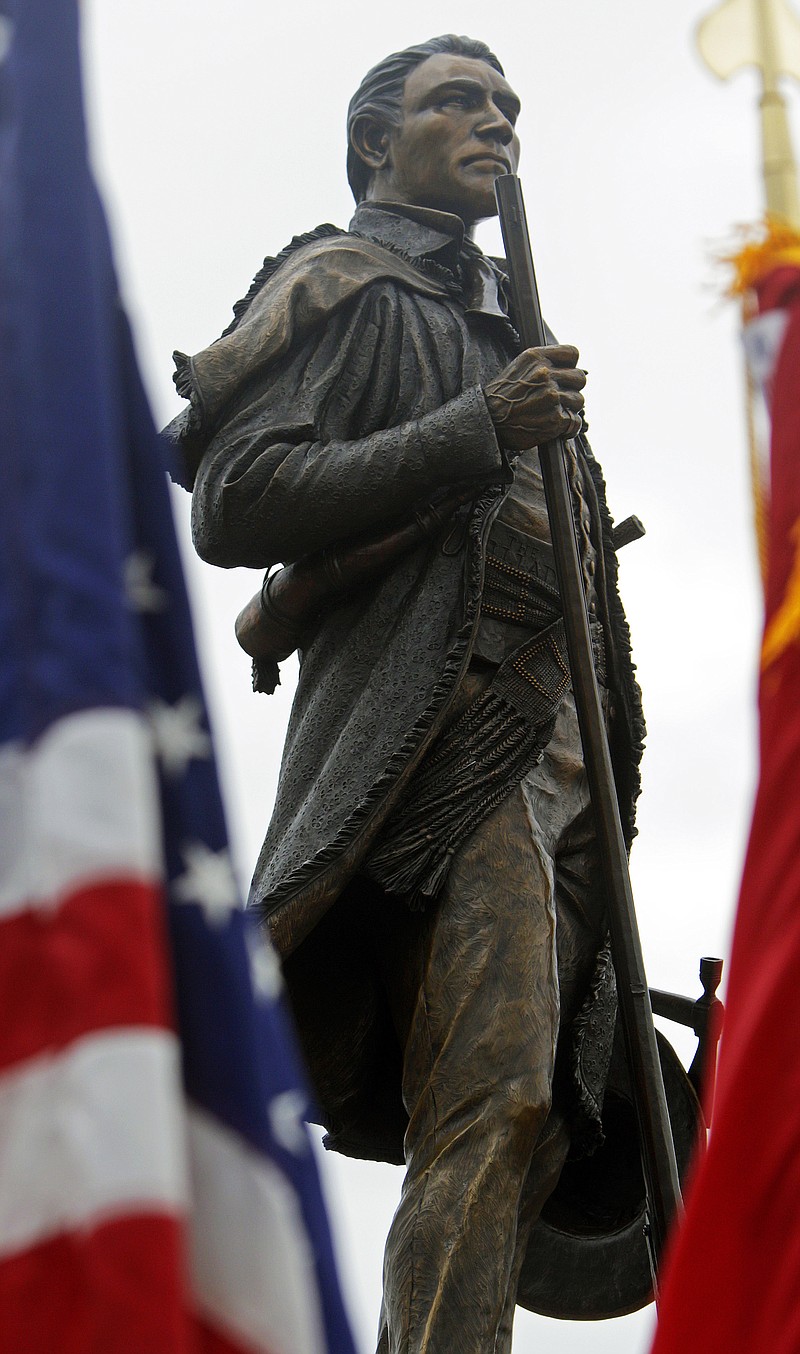After the disaster at the Alamo, Sam Houston rose to fame as the general who led the American volunteers in victory over Mexico, which led to the independence of the Republic of Texas. He became its first president.
In 1845, Texas joined America as the 28th state, and Houston was elected its U.S. senator. Later, voters elected him the governor of Texas. Houston is the only man ever elected as governor and to Congress from two separate states, Tennessee and Texas. In addition, he is the only Southern governor impeached during the Civil War because, like his mentor Andrew Jackson, he believed in the Union above all.
When most people think of Sam Houston, they think of Texas and our nation's fourth largest city, Houston. However, his roots belong to East Tennessee.
Sam was the middle child of nine siblings. He was only 14 when his 50-year-old widowed mother, Elizabeth Houston, moved her family to the Tennessee Valley near Maryville. His father had been a major in the Revolutionary War.
Sam was not particularly motivated as a teenager and lacked any sense of direction. Neither frontier farming nor working as a clerk at the family trading store was suitable for him. Unannounced, Sam left home to live with the Cherokee Indians. He traveled down the Tennessee River to its confluence with the Hiwassee River and lived on Jolly's Island. He spent his days reading Alexander Pope's translation of Iliad, making love to Indian maidens, and learning the Indian way of life. Sam became so ingrained in the Cherokee culture that Chief Oo-loo-te-ka "adopted" him as a son and gave him the Indian name The Raven.
After months among the Indians, Sam's older brothers, James and John, whom he called the sons of thunder, persuaded him to return home to Maryville. Unfortunately, Sam could not stay home long. He returned at least two more times to the Indian village where life made more sense to him.
After three years of living the Indian lifestyle, Sam accrued a considerable debt. He decided to open a one-room private school near Maryville to help pay his obligations. Many of the 40 families in Maryville considered it a joke. People said that Sam earned a "degree" from "the Indian University." Few students signed up, but Sam earned enough to pay his debts.
Years later, an old army comrade asked Gen. Houston what office afforded him the greatest pride out of being a governor, senator, commander in chief of an Army, and the president of a republic.
Sam replied that his greatest pride came from the year he was 18 and taught school in East Tennessee. "I experienced a higher feeling of dignity and self-satisfaction than from any office or honor which I have since held," he said.
When Sam turned 20, the War of 1812 was intensifying. The state of Tennessee, including surrounding areas, started recruiting soldiers. Sam needed his mother's permission to enlist, and she consented. At that time, she gave him a plain gold ring. Engraved on the inside was the word "Honor."
Sam wore that ring until his death 50 years later. In addition to the ring, Elizabeth, his mother, gave the young military recruit some advice. She implored him to "never disgrace" his musket. "I had rather all my sons should fill an honorable grave than that one of them should turn his back to save his life. Go, and remember, too, that while the door of my cabin is open to brave men, it is eternally shut against cowards," she said.
Sam joined Gen. Andrew Jackson and thousands of other Volunteers in the war effort. At the Battle of Horseshoe Bend on the Tallapoosa River in Alabama, the Cherokees, who helped in the effort against the Creeks, joined the Army. The Creeks, known as Redsticks, were in an alliance with the British. Sam sustained wounds that affected him for the rest of his life. Many thought he would die on the wet battlefield that night. Nevertheless, he rode on a horse litter and traveled back to East Tennessee.
After two miserable months, Sam finally arrived at his mother's cabin door. The doctor told her that it was useless to try to save him since he would only live a few days and merely run up a needless bill. On the contrary, Elizabeth nursed her son back to health and he was able to join Jackson in New Orleans. The rest is history.
Contact Greg Martin, the Hamilton County commissioner for District 3, at countycommissionergregmartin@gmail. For more information on local history, visit Chattahistoricalassoc.org.
